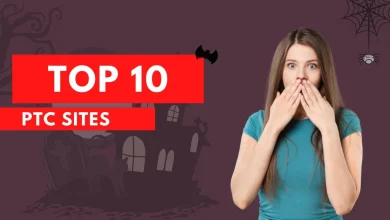Digital marketing trends for 2022

The coming year will be a particularly important year in terms of digital strategy, and even more so with the situation we are currently experiencing. There is a saturation of products without differentiation, and you can find the same thing in hundreds of shops, whether they are small, medium-sized, Amazon or Aliexpress. This situation means that, in order to differentiate ourselves, we have to put much more effort into developing a good brand experience strategy.
Jesús Nieto, professor of the Master in Digital Marketing, believes that “the pandemic has driven the evolution of digital marketing, forcing many companies to take it more seriously and invest more in digital visibility. This has led to increased competition and a rise in the cost of digital media buying.
1# The rise of the metaverse, nfts, virtual and augmented reality
It’s been a long time since we’ve heard of Second Life. I’m sure you’ve even wondered what would have become of the project that was so much talked about in the mid-2000s. All it took was for Facebook to announce its change of name to Meta and declare its intentions to make a strategic commitment to this format for marketers to pay attention to this issue.
The Metaverse is a digital reality that we will access through special devices, such as virtual or augmented reality glasses, in which we will be able to interact with other users. Each of these users will have an avatar (their character in the virtual world) and will interact through objects in immersive worlds.
We are talking about a second digital reality in which we will be able to interact with our friends, work with our colleagues, enjoy our partners and even have a job in the digital space.
And just as the metaverse is a parallel digital universe where we can find everything, you also have to anticipate and think about how you can use it to make your brand known and sell your products. It’s all still to be done, but there are already brands doing things.
We all know that Facebook is a company that lives by selling ads. So, during 2022 we will have to stay tuned to see how digital marketing evolves with respect to the metaverse.
I would also recommend you to understand what NFTs are and how companies like Alpine F1 use concepts like FAN TOKENS with NFTs. Or how Gucci is able to create a metaverse on Roblox and sell handbags for over €3,000.
2# Welcome to a world without cookies
Changes in legislation to guarantee and protect users’ privacy, together with the measures taken by Apple and Google in their Chrome browser to increase users’ privacy, have brought us head over heels in recent months.
Some advertising platforms such as Facebook’s have been seriously affected and we have seen remarketing audience sizes and audiences decrease, conversions drop and their automated bidding algorithms for sales and conversions compromised.
In this sense, in 2022 we will bet on first party data. So-called first party data. In addition, we will have to invest in the management and unification of the data we collect from each user and begin to establish the future of a world without cookies.
On the other hand, we will also see how Google and Facebook, who are already working on this, offer us alternatives. However, it remains to be seen whether they will be as effective as they have been so far.
3# Quality content VS quantity of content
Google’s core updates this year have made it clear that Google wants to provide users with reliable, quality answers. This is why it will take into account the authority of the domain for a given topic and the authority of the content writer.
It has also made it clear that it increasingly understands the intentionality of the user’s search. It will therefore look for the best response to each search intent.
The changes in the SERPs will also make us think about what new opportunities there are, bearing in mind that Google is increasingly giving more and more results so that users do not leave Google by introducing new snippets.
4# Featured snippets in Google searches
As we have discussed, Google will continue to be central to digital marketing. This year has seen one of the biggest changes in the SEO industry. With the growth of mobile and voice search, users are changing the way they use search engines like Google. Being number one in the SERP results pages is no longer necessarily the goal to aim for.
ou’ve probably noticed that your own search and browsing behaviour has changed over the last few years due to Google’s changes and the fact that we search for information faster when we’re on the move.
15 digital marketing trends in 2022: Metaverse, NFTs, Cookieless… – image 1024×485
Featured snippets and other information in SERPs mean you no longer need to click through to a website to get the information you are looking for. It is right there on the Google search results page.
This information can appear in many places, but the most searched position is right at the top of the page, before the list of organic pages. Over 60% of the search results returned by Google are now featured snippets.
5# Conversational marketing
As Gartner predicted, users increasingly want more non-intrusive self-service experiences. Therefore, conversational marketing applications such as chatbots in eCommerce and live chats that accompany and reassure users in the last mile of the purchase will play a critical role.
Chatbots in full funnel strategies or Typeform questionnaires, with surveys or conversational questionnaires, also demonstrate their great ability to attract leads. We must bear in mind that these leads can be very different from other qualified leads, but they can help us to generate audiences and obtain data that, with a good inbound marketing strategy, can promote many sales, recommend agencia marketing digital
6# Video marketing is the way to go
According to a CISCO study, video will account for 82% of all online traffic by 2022. Videos are 53 times more likely to rank higher in SERP positions than other SEO techniques. In fact, 93% of marketers say video is now a key part of their content strategy.
Brands will need to integrate video content such as product demonstrations, webinars and live video events to keep their content fresh and aligned with what consumers are looking for.



